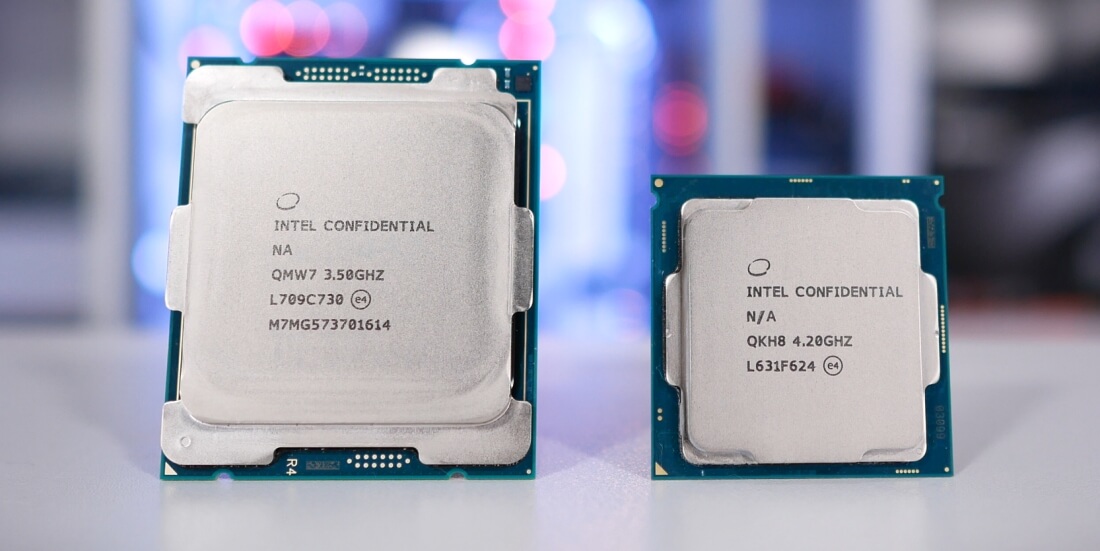Although we consider AMD's Ryzen 5 1600 to be the sweet spot for folks building a new high-end gaming rig, many of you interested in going Intel have been wondering whether it makes more sense to buy the Core i7-7700K or the new 7800X?
We presume the reason why so many are asking this question is that the Core i7-7800X costs just ~$70 more and with that you get two extra cores, but also access to Intel's latest desktop platform. There are other cost considerations to make, but we'll discuss those later.
Before we jump straight to the comparison benchmarks, let's have a quick look at what the two Intel CPUs have to offer on paper.
| Intel Core i7-7800X | Intel Core i7-7700K | |
| Cores / Threads | 6 / 12 | 4 / 8 |
| Base Frequency | 3.5 GHz | 4.2 GHz |
| Boost Frequency | 4.0 GHz | 4.5 GHz |
| TurboMax Frequency | 4.0 GHz | 4.5 GHz |
| L2 Cache | 6 MB | 1 MB |
| L3 Cache | 8.25 MB | 8 MB |
| PCIe Lanes | 28 | 16 |
| Memory Configuration | Quad-Channel | Dual-Channel |
| Max Memory Support | DDR4-2400 | DDR4-2400 |
| TDP | 140 W | 91 W |
| Socket | LGA 2066 | LGA 1151 |
| MSRP | $390 | $340 |
The 7700K has a clear clock speed advantage out of the box, though I will also be overclocking both CPUs for full testing purposes.
Besides the obvious core count, perhaps the biggest difference between these models is their cache design. The 7800X has 6x more L2 cache but about the same amount of L3 cache. Of course, the 7800X also packs 50% more cores and with that the TDP has been increased by a little over 50%.
We have tested 30 games, all of which were played on the GeForce GTX 1080 Ti. The 7800X was configured with 32GB of DDR4-3200 in quad-channel while the 7700K was armed with 16GB of dual-channel memory. We tested both processors at stock settings as well as overclocked – the 7700K was set at a relatively easy to achieve 4.9GHz, while the 7800X was at 4.7GHz.
On with the results...
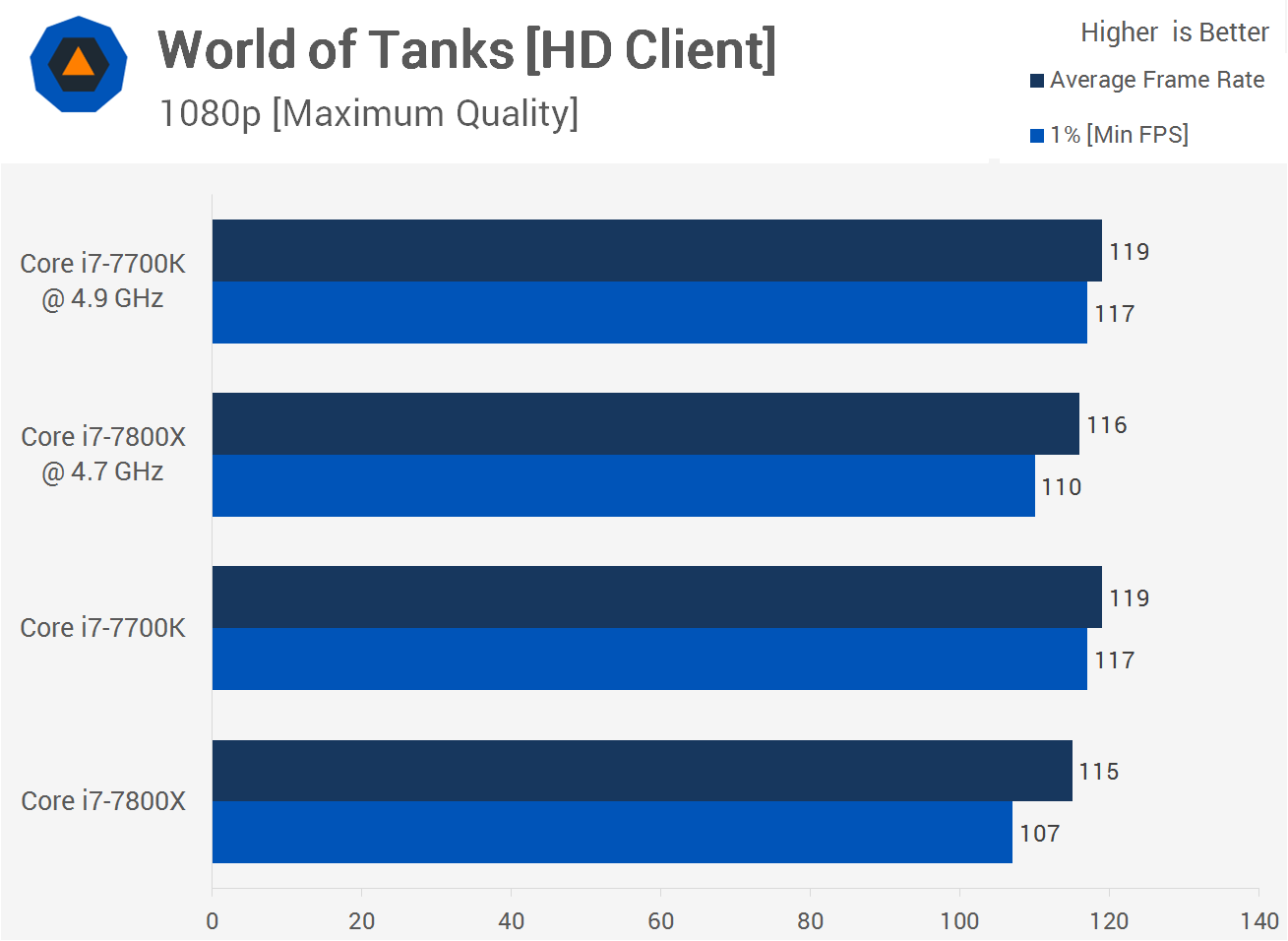
First up we have World of Tanks, not a particularly demanding game but I'm pretty much throwing everything we normally test with at these CPUs. Here we see out of the box the 7700K is 9% faster than the 7800X – not a huge margin, though it was surprising to find that when overclocked the 6-core CPU still couldn't match the 7700K. This isn't a CPU intensive game anyway and since we are pushing over 100fps at all times, the margins are somewhat irrelevant.
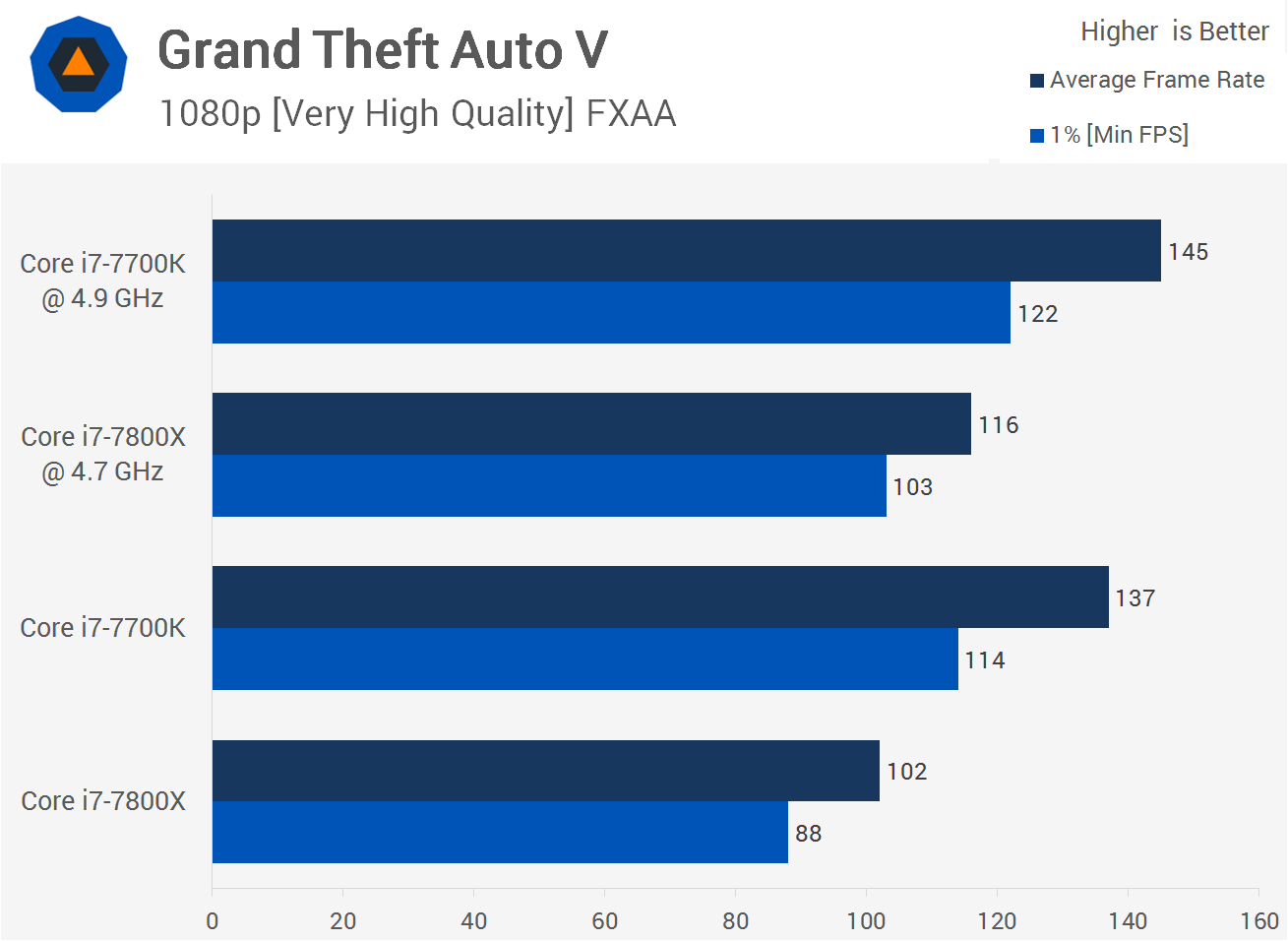
Grand Theft Auto V is often used for testing CPU performance and here we find some unexpected results. Comparing the minimum result we see that the 7700K is a massive 30% faster than the 7800X, overclocking reduced that margin to 18% but still, given there is just a 4% difference in clock speed once overclocked this is a huge win for the quad-core CPU.
Again even overclocked the 7800X is still slower than the stock 7700K, 10% slower in fact when comparing the minimum frame rate.
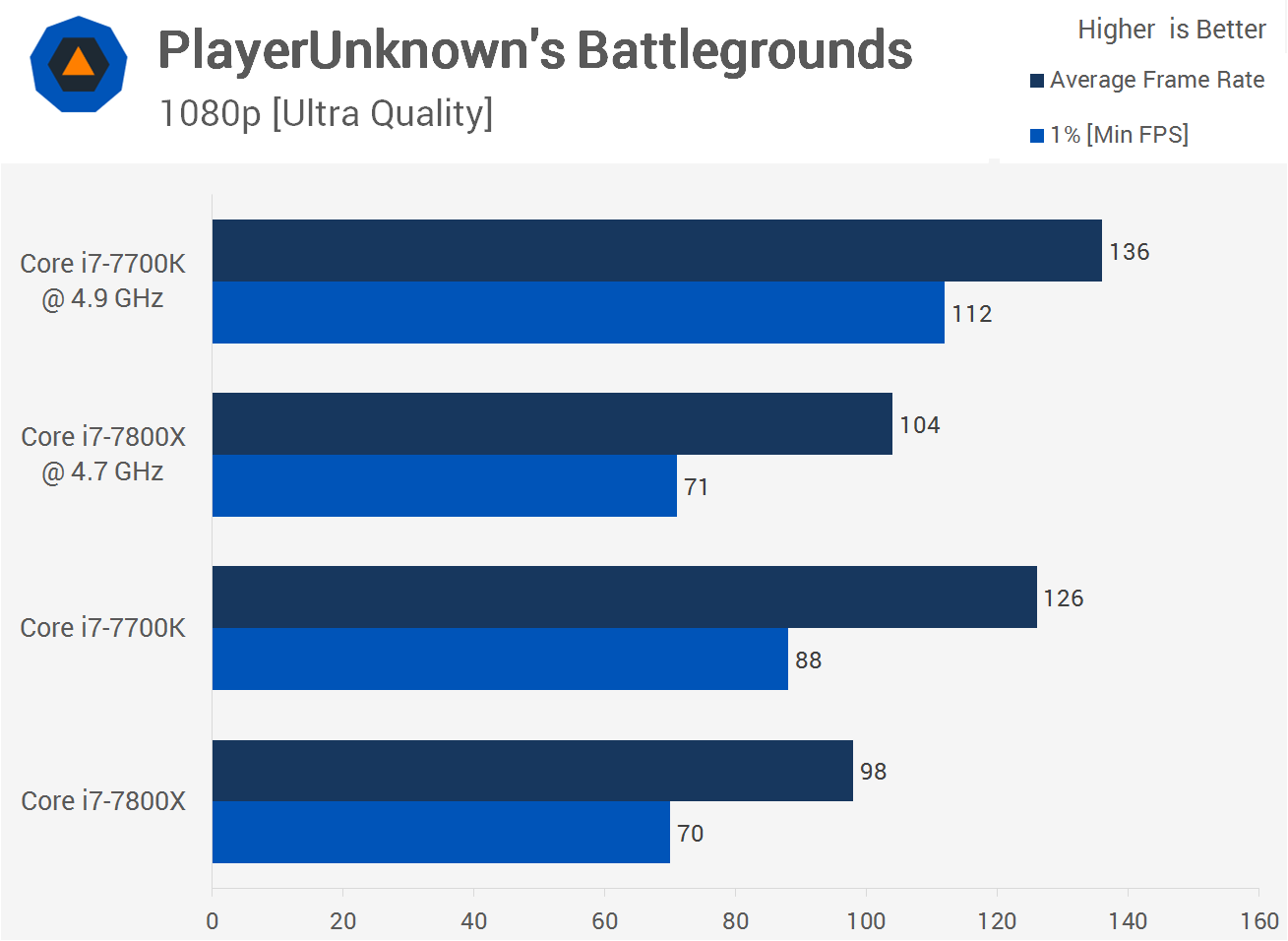
Since this is a popular title right now I thought why not throw it into the mix. If you're playing with a dual-core or a lower-end quad-core and things aren't going well don't bother spending big by investing in the 7800X. You'll see almost 30% more performance when using the 7700K according to my testing.
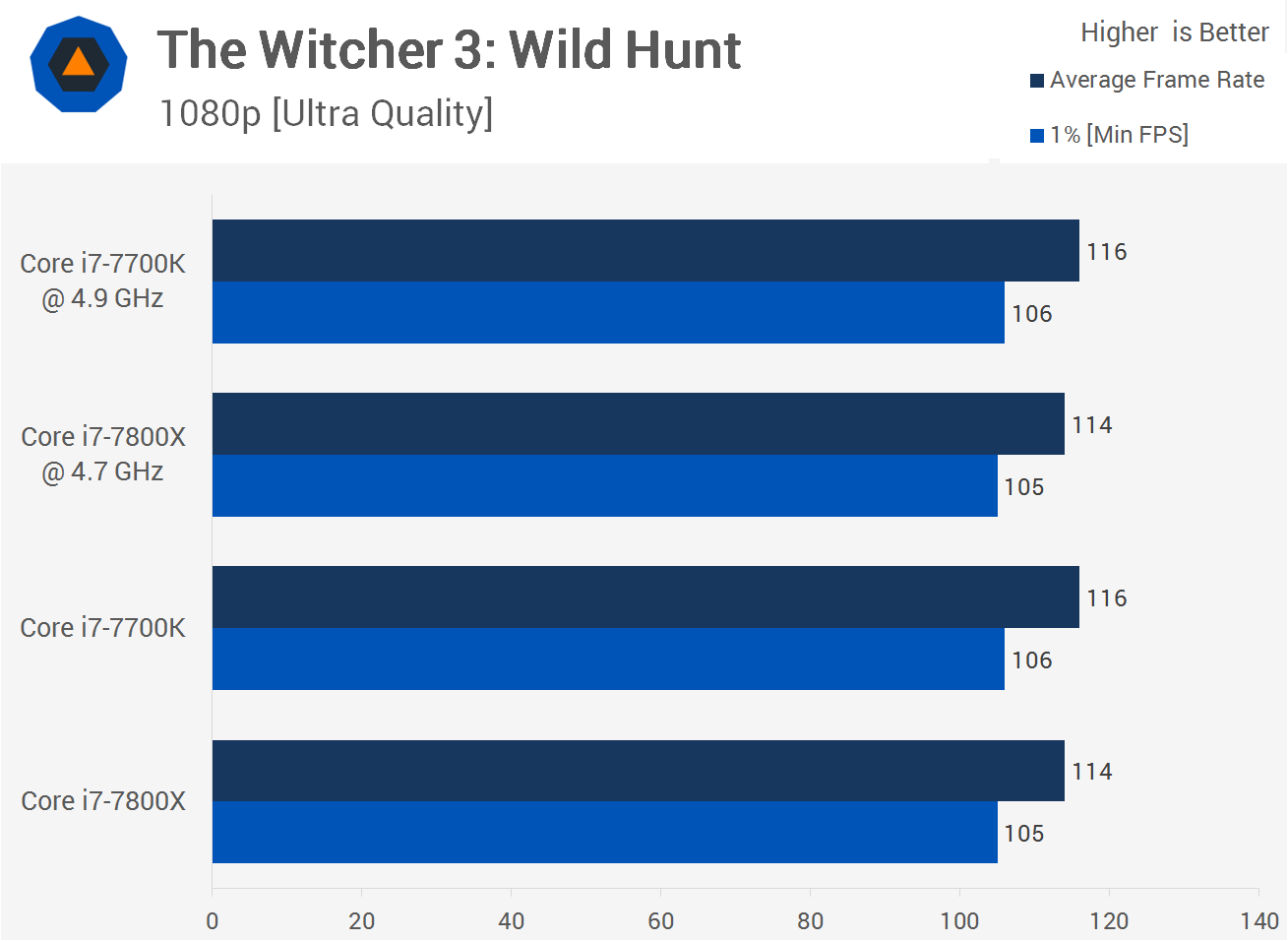
The Witcher 3 is often talked about as being a CPU intensive game and to a degree it is. That said the 7700K is more than capable of getting the most out of the 1080 Ti in this title and here we see much the same performance across the board.

